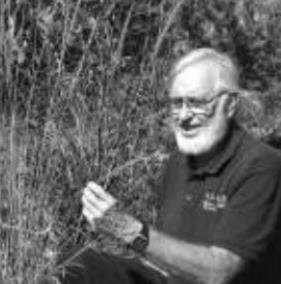I still remember the first exposure I had to experts talking about land management in the Hill Country. It was in January of 2002 in an all-day symposium on land management in one of the local hotels in Kerrville. The speakers were all college professors or government agency people from Texas A&M AgriLife Extension, Texas Parks and Wildlife Department, Texas Forest Service and the USDA Natural Resources Conservation Service.
I still remember vividly my impressions from that day. I was surprised at the near unanimity of opinion of the different speakers representing different disciplines, as well as different agencies with different missions and experiences as to what constitutes good land management for the Hill Country. I was also inspired by the passion and dedication of these folks for the work they were doing and its importance.
I had grown up in the country in the high plains of Texas and had worked on a farm and hiked and hunted the open pastures as a kid. And I had spent a lifetime of vacations in State and National Parks being interested in wildlife and conservation. But I had no formal academic training in the disciplines most of the speakers at the symposium represented.
What I learned from that first symposium was that nature, native habitats, ranching, wildlife and conservation are much more complicated than I thought, and some of what I thought I knew was probably wrong. But that symposium was truly a life-changing event for me. Since then, I have been learning everything I can about all of these topics, and working to help others learn about them as well. This has become my full-time “job” in retirement.
In the intervening years since that first symposium, I have had the opportunity and privilege to attend literally many hundreds of presentations and demonstrations by scores of experts on many different topics having to do with the land and the flora and fauna of the Hill Country. Many of those opportunities were facilitated by my becoming a member of the Hill Country Chapter of the Texas Master Naturalists, but many of those opportunities were events sponsored by various government agencies and other organizations.
Almost without exception, I have found these agency and university people to be eager to share their knowledge and experience as well as their time to help landowners and other interested folks better understand the natural world around them. Some of the government agents will even visit a landowner’s property to discuss various management issues, and in some cases, there is even government money available to assist some landowners with specific problems.
I can say that I have been able to get to know many of these experts and can count many of them as friends. I have to thank all of them for not only sharing their knowledge and experience, but for their encouragement and guidance as I have tried to do my part in educating folks in the Hill Country about the natural world around them and how they can become better stewards of the land.
The Texas Master Naturalist organization, which is jointly sponsored by the Texas AgriLife Extension Service and the Texas Parks and Wildlife Department, is a program that not only facilitates the education of interested Texans on all topics related to the natural world around us, but also provides trained naturalists to volunteer for hundreds of projects involving education, outreach and service dedicated to the beneficial management of natural resources and natural areas. This program also would not be possible without the involvement of many government agents.
When I was 10 years old, I started to work for the cotton farmer near our house. I remember a time when the AgriLife Extension agent (we called them County Agents back then) came out to count boll worms to tell the farmer if he needed to spray them. That same county agent helped me choose my first 4-H lambs and later my calves and hogs, and he taught me how to take care of all of them and how to show them. I have more fond memories of that agent and my animals and 4-H than I do of going to school in those years.
My experience is that too few people avail themselves of the free advice, knowledge, experience and help from these government agents when it comes to land management. Their advice is free of any economic interests in the decisions you make.
I am again available every Friday at Riverside Nature Center from 10 to 12 to talk one on one with anyone with questions or who just wants to talk about any issues related to nature.
Until next time…
Jim Stanley is a Texas Master Naturalist and the author of the books “Hill Country Ecology,” “Hill Country Landowner’s Guide” and “A Beginner’s Handbook for Rural Texas Landowners.” He can be reached at <jstmn@ktc.com>. Previous columns can be seen at <www.hillcountrynaturalist.org>.

